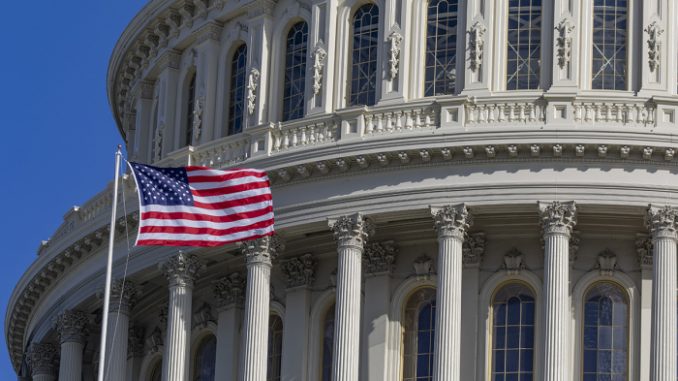
A United States senator has introduced legislation to make the day after Easter a federal holiday so families can more easily celebrate the Christian holiday together.
In a thread on X, Sen. Eric Schmitt, R-Mo., announced that he had introduced a bill that would make Easter Monday a federal holiday. His social media post came one week before Easter Monday, which falls on April 21 this year.
“81% of Americans celebrate Easter,” Schmitt wrote. “But our current holiday schedule makes it way too difficult for families to celebrate together.”
Schmitt noted that “Easter falls on the longest unbroken work stretch of the calendar,” adding, “March and April are the only back-to-back months without a federal holiday. This isn’t a radical idea.”
He continued, “It’s a federal recognition of a tradition that is central to Western civilization — a tradition that’s already recognized as a public holiday in nations across (and beyond!) the West, including Canada, Australia, New Zealand and most of Western Europe.”
“It isn’t even novel in America,” Schmitt said of the idea of making Easter Monday a federal holiday. “We already have a ‘National Day of Prayer,’ signed into law by Missouri’s own President Truman. A federal Easter Monday holiday allows Americans to celebrate the most extraordinary day in world history, Easter–the day of Christ’s resurrection.”
Schmitt asserted that “Easter already unites more than three-quarters of Americans” and highlighted how “For generations, many American school calendars gave students the day off for Good Friday and Easter Monday.” The senator further characterized his proposal to make Easter Monday a federal holiday as “Pro-worker. Pro-family. Pro-faith.”
“There are plenty of practical arguments for it, too,” Schmitt added. “Easter weekend already generates around $15 billion for our economy. Making it a three-day weekend could boost that by an estimated 10-15%, adding up to $2 billion in economic activity while strengthening American families.”
Schmitt concluded his X thread by describing “our holidays and traditions” as “part of the story we tell ourselves.” He maintained that “This is not partisan” and “It’s not a ‘Republican’ or ‘Democrat holiday,’” but rather “an American holiday, allowing a fuller celebration of the defining moment of our faith that shaped our nation and civilization.”
While the date of Easter varies every year, it always falls between March 22 and April 25, during what Schmitt described as the only back-to-back months without a federal holiday.
The official website for Congress shows that Schmitt’s bill was introduced on Thursday and would amend Title 5 of the U.S. Code to make Easter Monday a federal holiday. It was referred to the Senate Judiciary Committee and doesn’t have any co-sponsors at this time.
Title 5 of the U.S. Code establishes the legal public holidays in the U.S. New Year’s Day and Martin Luther King Jr. Day take place in January, Presidents’ Day is observed in February, Memorial Day is celebrated in May, Juneteenth is celebrated in June, Independence Day falls on July 4, Labor Day is observed in September, Columbus Day is celebrated in October, Veterans Day and Thanksgiving Day take place in November and Christmas Day is in December.
According to officeholidays.com, the source cited by Schmitt to highlight which countries celebrate Easter Monday, over 100 countries and territories recognize the holiday. While the U.S. isn’t one of those countries, the U.S. Virgin Islands celebrates the holiday.
If Schmitt’s bill becomes law, Easter Monday would become the 13th federal holiday in the U.S. The most recent addition to the list, Juneteenth, became a public holiday four years ago after Congress overwhelmingly approved a bill to commemorate the anniversary of when slaves in Galveston, Texas, first found out about the Emancipation Proclamation. Only 14 congressional Republicans voted against the measure, which then-President Joe Biden signed into law.
The Christian Post reached out to Schmitt’s office for a comment on the legislation. This article will be updated if a response is received.
Ryan Foley is a reporter for The Christian Post. He can be reached at: ryan.foley@christianpost.com






Be the first to comment